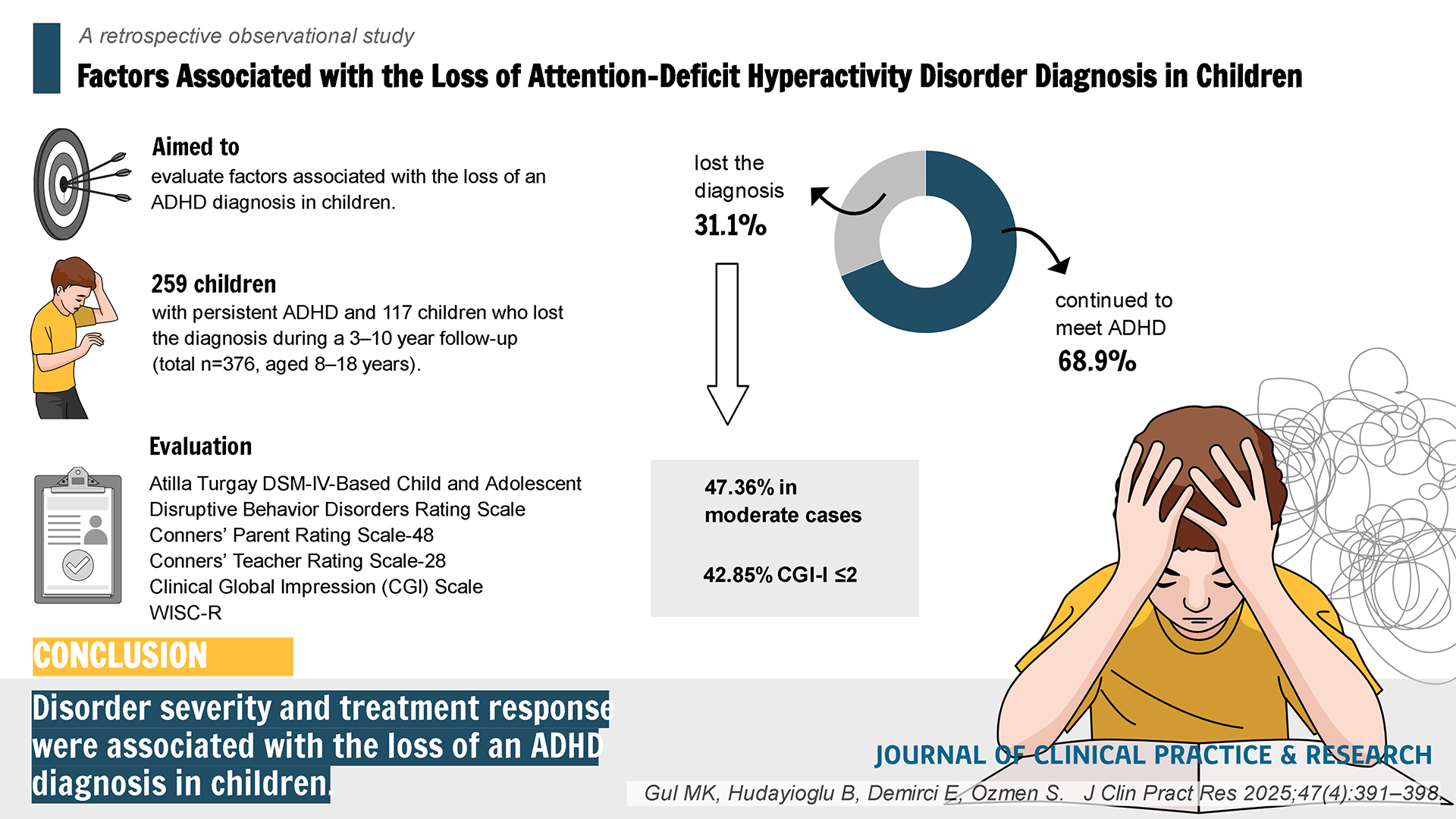Abstract
Objective: Attention-deficit hyperactivity disorder (ADHD) is one of the most common neurodevelopmental disorders of childhood and is notable for its high persistence into adulthood. This study aimed to evaluate factors associated with the loss of an ADHD diagnosis in children.
Materials and Methods: Data from children diagnosed with ADHD who were evaluated at a university hospital between November 2017 and November 2022 were analyzed retrospectively. The study included 259 children with a persistent ADHD diagnosis and 117 children who lost the diagnosis during a 3–10 year follow-up period.
Results: No statistically significant associations were found between loss of ADHD diagnosis and gender, ADHD subtype, treatment discontinuation, ADHD treatment, use of additional psychiatric treatment, and treatment response, comorbidity, chronic disease status, and use of additional treatment. The diagnosis was lost in 17.54% of patients with a severe disorder according to the baseline Clinical Global Impression (CGI) – Severity scale, compared to 47.36% in those with moderate severity (p=0.023). Among patients who responded to ADHD treatment (CGI-Improvement ≤2), 42.85% lost the diagnosis, whereas only 24.15% of non-responders did so (p<0.001).
Conclusion: Disorder severity and treatment response were two factors associated with the loss of an ADHD diagnosis. Recognizing these factors may help clinicians better predict patient prognosis.
Graphical Abstract



